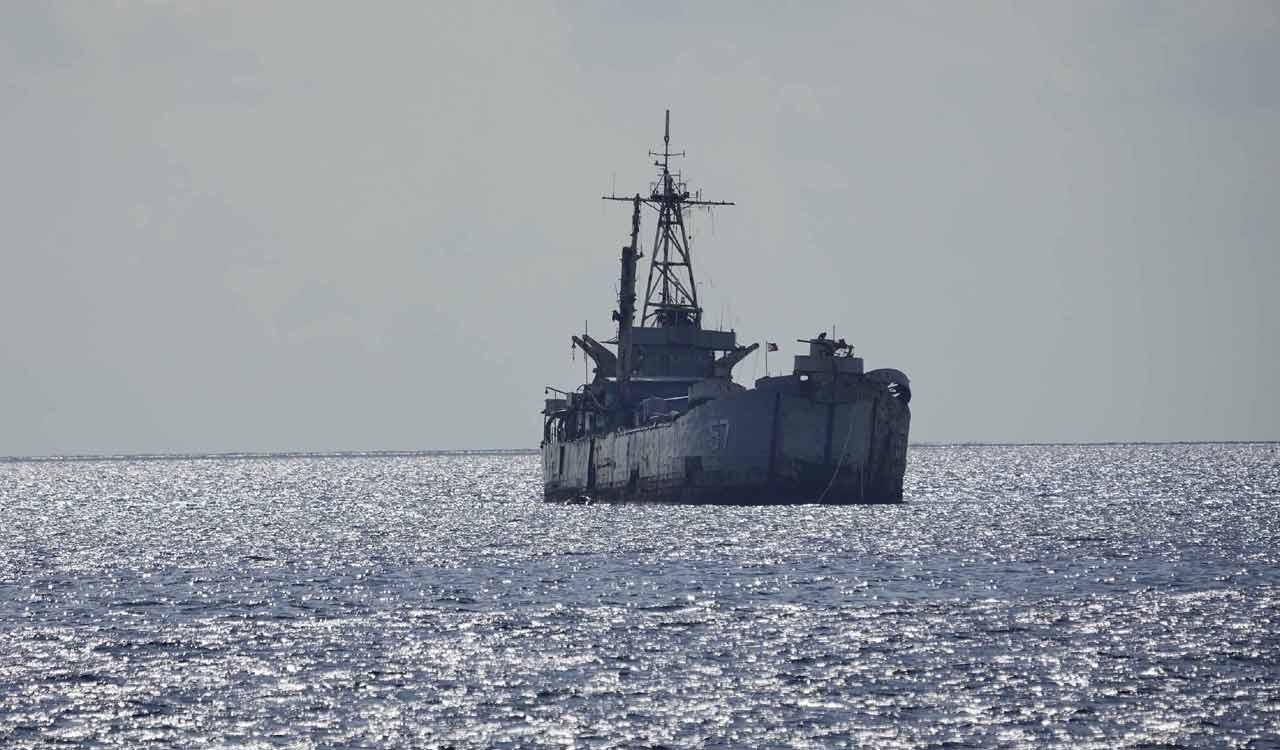
Top admiral's remarks come amid spike in hostilities between Beijing and Manila in disputed waters
Updated On - 28 August 2024, 09:45 AM
Manila: The US military is open to consultations about escorting Philippine ships in the disputed South China Sea, the head of US Indo-Pacific Command has said amid a spike in hostilities between Beijing and Manila in the disputed waters.
Adm Samuel Paparo’s remarks, which he made in response to a question during a news conference in Manila with Philippine Armed Forces chief Gen. Romeo Brawner Jr., provided a glimpse of the mindset of one of the highest American military commanders outside the US mainland on a prospective operation that would risk putting US Navy ships in direct collisions with those of China.
Paparo and Brawner spoke to reporters after an international military conference in Manila organised by the US Indo-Pacific Command, at which China’s increasingly assertive actions in the South China Sea were spotlighted. Military and defense officials and diplomats from the US and allied countries attended but there were no Chinese representatives.
Asked if the US military would consider escorting Philippine ships delivering food and other supplies to Filipino forces in the South China Sea, Paparo replied, “Certainly, within the context of consultations.” “Every option between the two sovereign nations in terms of our mutual defense, escort of one vessel to the other, is an entirely reasonable option within our Mutual Defence Treaty, among this close alliance between the two of us,” Paparo said without elaborating.
Brawner responded cautiously to the suggestion, which could run afoul of Philippine laws, including a constitutional ban on foreign forces directly joining local combat operations. “The attitude of the Armed Forces of the Philippines, as dictated by the Philippine laws, is for us to first rely on ourselves,” Brawner said. “We are going to try all options, all avenues that are available to us in order for us to achieve the mission…in this case, the resupply and rotation of our troops.” “We will then seek for other options when we are already constrained from doing it ourselves,” Brawner said.
President Ferdinand Marcos Jr. has said there has been no situation so far that would warrant activating the treaty, which requires the allies to come to each other’s aid if they come under external attack.
President Joe Biden and his administration have repeatedly renewed their “ironclad” commitment to help defend the Philippines under the 1951 treaty if Filipino forces, ships and aircraft come under an armed attack, including in the South China Sea.
Philippine Defence Secretary Gilberto Teodoro Jr said at the conference that China is “the biggest disruptor” of peace in Southeast Asia and called for stronger international censure over its aggression in the South China Sea, a day after China blocked Philippine vessels from delivering food to a coast guard ship at the disputed Sabina Shoal in the contested waters.
Chinese Foreign Ministry spokesperson Lin Jian said “the label of undermining peace can never be pinned on China,” blaming unspecified other actors for “making infringements and provocations in the South China Sea and introducing external forces to undermine the large picture of regional peace and stability.”
Teodoro later told reporters on the sidelines of the conference that international statements of concern against China’s increasingly assertive actions in the disputed waters and elsewhere were “not enough.” “The antidote is a stronger collective multilateral action against China,” Teodoro said, adding that a UN Security Council resolution would be a strong step, but unlikely given China’s security council veto.
He also called for the Association of Southeast Asian Nations to do more. The 10-nation Southeast Asian bloc includes the Philippines, Vietnam, Malaysia and Brunei, which have South China Sea claims that overlap with each other, as well as China’s and Taiwan’s. “ASEAN, to remain relevant and credible, cannot continue to ignore what China is doing in the South China Sea,” Teodoro said.
In the latest incident in the South China Sea, Philippine officials said China deployed “an excessive force” of 40 ships that blocked two Philippine vessels from delivering food and other supplies to Manila’s largest coast guard ship in Sabina Shoal on Monday.





Leave a Reply